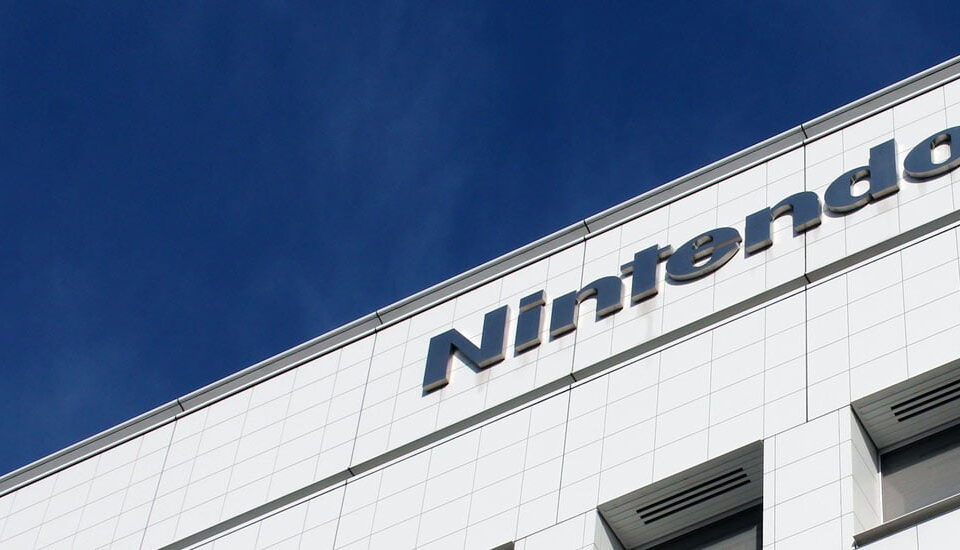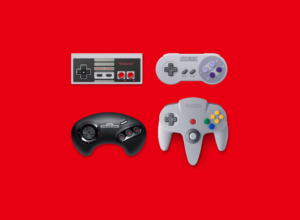Nintendo’s first profit in four years points to a new IP lead approach.
It’s been a busy day for Nintendo. This morning we woke to the mouth-watering prospect that a Donkey Kong Country Mine cart ride could be a real thing. And this afternoon came the news that the company has made its first annual operating profit in four years.
Nintendo reported profits of ¥24.8bn (£136m) for the year to March, much higher than its own forecast of ¥20bn. Also noted was the success of several first party titles on the 3DS and Wii U. On Nintendo’s handheld Pokémon Ruby/Alpha and Super Smash Bros. sold 9.94 million units and 6.75 million units respectively. On Wii U, Mario Kart 8 led the way with 5.11 million copies sold.
However, despite these successes, games sales were down by almost 4% year on year. The main reason cited for the improved profit margin was ‘falling costs’ but it also feels that a significant strategic shift is also starting to pay off.
Nintendo has suffered lean times since the launch of the Wii U. As a result they have increasingly sought to improve their finances by focussing inward, increasing revenue by generating more cash from their devout fan base. They appear to have woken up to the fact that they are the ‘Disney of video games’ and are now operating more like an IP driven business, rather than a technology one. Although games remain Nintendo’s core product they are becoming part of a much larger offering.

We have seen this before, of course. Only a decade ago Marvel was a company wrestling with a dwindling audience but an enviable and underused IP roster. Their acquisition by Disney and subsequent movie and merchandise strategies has turned them into one of the biggest brands in entertainment. There is no reason why Nintendo can’t furrow a similar path.
It’s a far cry from Blue Ocean days of the Wii and NDS, but it’s also a strategy that has seen Amiibo figures fly off the shelves, an impending move into mobile, rumours of movie and TV deals, and the partnership with Universal Theme Parks.
Admittedly this approach is not without risk. It will be of paramount importance that Nintendo’s games continue to be of a high standard. As long as this remains the case there will be few who will take issue with any ancillary activities that increase the reach of the their brand.
Having been in the doldrums for so long it feels like Nintendo could be on the verge of something big. Although the transition will not be without growing pains – Hello, Amiibo supply chain – it is at least a determined course of action. As game developers Nintendo are at a creative high, but they are faced with fewer and fewer people experiencing their games. The shift into an entertainment company will support Nintendo’s creative endeavours and also distinguish them from their traditional home console competitors. This change will mean that Nintendo is no longer a just a games company, but a company that makes toys, movies and other experiences based on its franchises.
It could also mean that Nintendo is a company that is relevant once again.







“It could also mean that Nintendo is a company that is relevant once again.”
As if Nintendo hasn’t been relevant — there’s a reason why everyone else has been copying them for the last 15 years, and it’s not just because Mario’s chubby or Pikachu’s cute. The only people who’ve dismissed Nintendo are emo teens who think playing CoD makes them look cool.
Most gamers couldn’t care less about who copies who. Nintendo’s next console must have major third party support. For years, Microsoft and Sony have managed it. But Nintendo has been all for itself for years and it backfired with the Nintendo 64, GameCube and Wii U, even the Wii had poor third party support. Somehow, I can’t see Nintendo changing its ways. Nintendo won’t splash the cash on exclusives or exclusive content. But if Nintendo releases a powerful console that sells in Wii numbers, developers and publishers will deliver the games. That didn’t happen with the Wii because it was massively under powered.
When you look at Nintendo’s console history (not handhelds), only the NES, SNES and Wii have been a success. The N64, GameCube and more so the Wii U have flopped compared to other consoles out at the time. I agree that third party support is the key to a successful console. Although the Wii lacked third party support, yet hit 100 million unit sales, it’s was the motion control fad that sold it. When that died down, the Wii U was released and it was basically old news. Nintendo has brought many things to gaming, but that’s been shared with other companies.
I maybe should have put it better. In terms of game design and game quality Nintendo has ALWAYS been relevant. And with the wider public too, certainly during the NES, SNES, DS, Wii eras. I think they have recognised that the landscape has changed and the old model of be focused on hardware boxes alone will only offer small gains. By being ‘character led’ they become much more agile. Assuming they pull it off, of course.
Nintendo has always been relevant whether you think so or not. They’ve been around for over 100 years. If they ever weren’t relevant, they wouldn’t be here today.